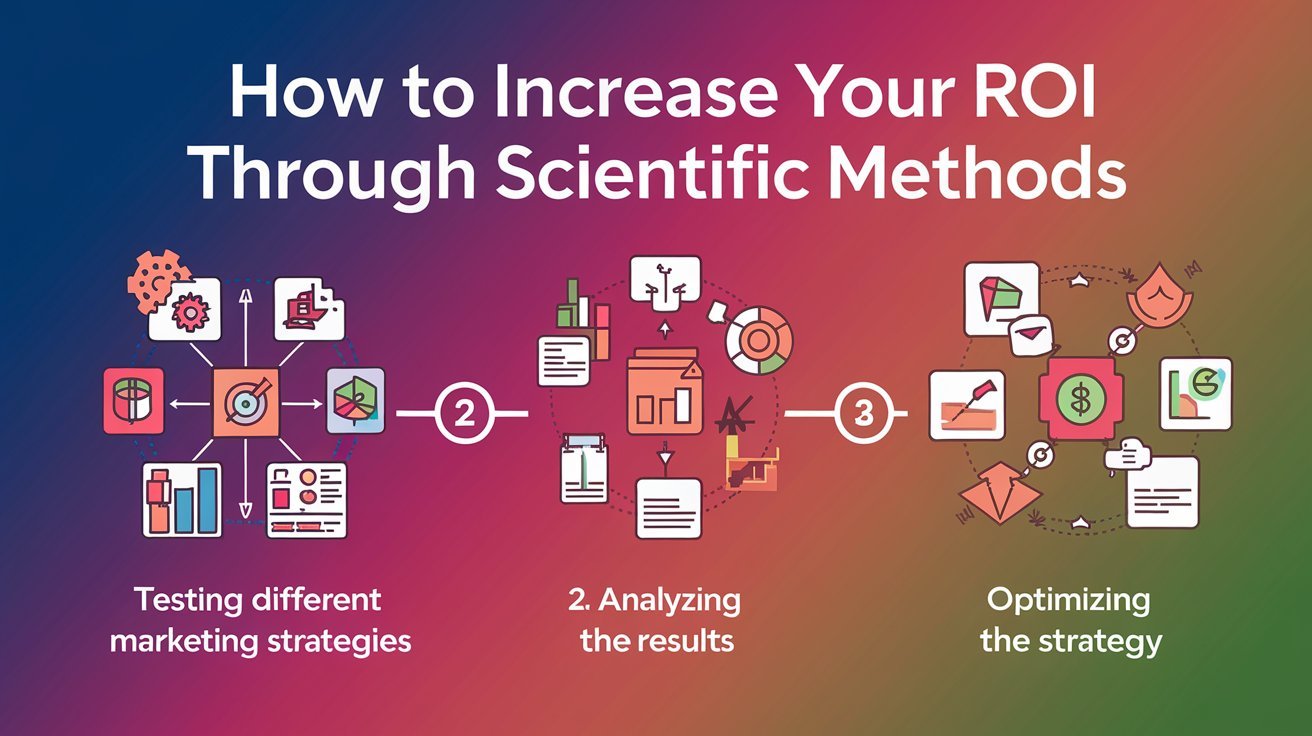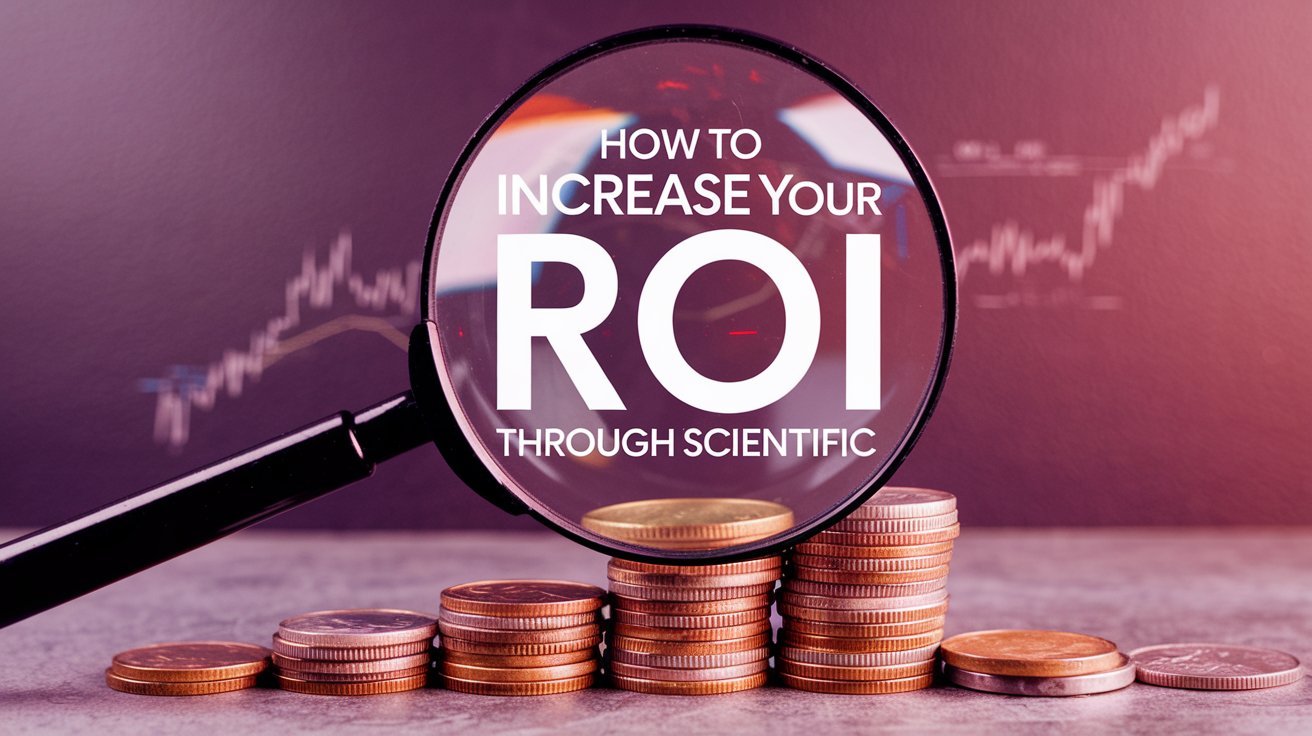Data-driven world, businesses are increasingly turning to scientific approaches to maximize their return on investment (ROI). By leveraging data analytics, experimental methods, and systematic strategies, companies can optimize their operations, marketing efforts, and overall business performance. This blog explores how scientific methods can enhance your ROI, with practical tips and trending keywords to guide your strategy.
1. Embrace Data-Driven Decision Making
Data-driven decision making is crucial for improving ROI. Utilizing data analytics allows businesses to make informed decisions based on empirical evidence rather than intuition alone.
- Implement Advanced Analytics Tools: Use tools like Google Analytics, Tableau, and Power BI to collect and analyze data from various sources.
- Leverage Predictive Analytics: Apply predictive models to forecast future trends and behaviors, helping you to make proactive decisions.
- Monitor Key Performance Indicators (KPIs): Regularly track KPIs related to your business objectives to gauge performance and adjust strategies accordingly.
2. Apply A/B Testing for Optimization
A/B testing, or split testing, is a scientific method used to compare two versions of a variable to determine which performs better. This technique is particularly effective in optimizing marketing campaigns, website design, and product features.
- Define Clear Hypotheses: Establish what you want to test and what you expect to achieve with each variation.
- Use Testing Tools: Employ A/B testing tools like Optimizely, VWO, or Google Optimize to run experiments.
- Analyze Results Rigorously: Assess the data to determine which version yields better results and apply insights to improve your strategies.

"These cases are perfectly simple and easy to distinguish. In a free hour, when our power of choice is untrammeled and when nothing prevents our being able to do what we like best, every pleasure is to be welcomed and every.!"
Cherry Cruuz
3. Utilize Customer Segmentation for Targeted Marketing
Customer segmentation involves dividing your customer base into distinct groups based on demographics, behaviors, or preferences. This scientific approach enables more targeted marketing efforts, which can enhance ROI by increasing relevance and engagement.
- Analyze Customer Data: Use CRM systems and analytics tools to segment customers based on key attributes and behaviors.
- Create Personalized Campaigns: Develop marketing strategies tailored to each segment’s needs and preferences.
- Measure and Adjust: Continuously monitor the performance of segmented campaigns and adjust strategies based on results.
4. Optimize Resource Allocation Using ROI Analysis
ROI analysis helps determine the effectiveness of your investments and optimize resource allocation. By systematically evaluating the return on various investments, you can reallocate resources to high-performing areas.
- Calculate ROI for Each Investment: Use ROI formulas to assess the performance of different projects or campaigns.
- Prioritize High-ROI Opportunities: Allocate resources to areas with the highest return potential.
- Continuously Review Performance: Regularly evaluate the effectiveness of your investments and adjust allocations based on performance data.
5. Implement Scientific Marketing Techniques
Scientific marketing techniques involve using data and analytics to design, implement, and optimize marketing strategies. These methods help in identifying what works best and continuously improving marketing efforts.
- Conduct Market Research: Use surveys, focus groups, and data analysis to understand market trends and customer preferences.
- Apply Behavioral Science: Integrate insights from behavioral science to design marketing campaigns that influence customer decision-making.
- Measure Campaign Effectiveness: Track and analyze marketing metrics to determine the success of your campaigns and refine them accordingly.
6. Foster Innovation Through Experimentation
Experimentation is a key scientific approach to drive innovation and improve ROI. By testing new ideas, processes, and technologies, businesses can discover effective solutions and stay ahead of the competition.
- Encourage a Culture of Experimentation: Promote an environment where team members are encouraged to test new ideas and approaches.
- Use Controlled Experiments: Implement experiments with controlled variables to accurately measure outcomes and impacts.
- Learn from Failures: Treat failed experiments as learning opportunities and use insights to refine future strategies.

- Data analytics plays a crucial role in increasing ROI by providing insights into customer behavior, market trends, and business performance.
- A/B testing contributes to better ROI by allowing businesses to compare different versions of marketing materials or website elements to determine which performs better.
- Customer segmentation allows for more targeted marketing efforts by tailoring messages and offers to specific groups based on their attributes and behaviors.
- ROI analysis helps businesses assess the performance of different investments, enabling them to allocate resources to projects or campaigns that deliver the highest returns.
- Scientific marketing techniques involve using data, research, and analytics to design and optimize marketing strategies.

